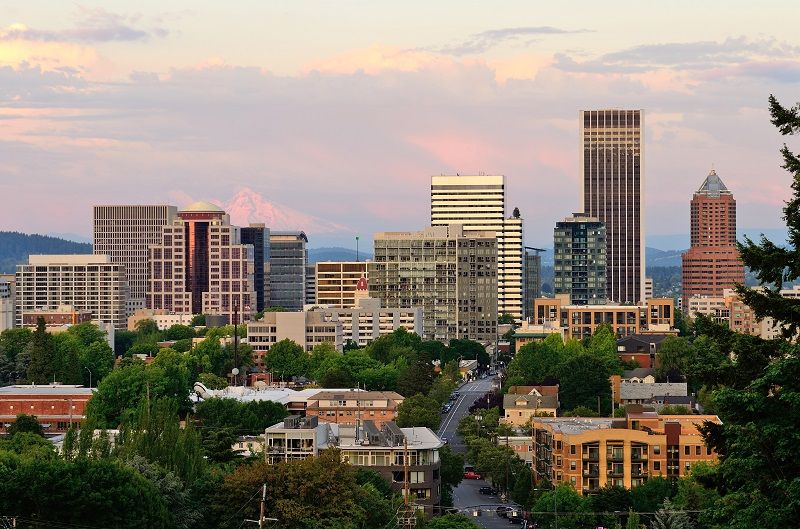By Erin Shannon
The city of Seattle made history last month with an ordinance that will force every employer in the city to pay every worker a $15 per hour minimum wage, which is the highest in the nation. But before progressives in Portland try to hold up Seattle as a model, they should watch what happens to workers there. The controversial wage mandate passed by Seattle’s City Council has not even been enacted yet, but it is already having a chilling effect on jobs.
Small business owners are expressing deep worry over the coming super-high minimum wage. Many of these job creators say they are holding off on opening new ventures or expanding their current business in Seattle, while others say they are delaying plans to hire new workers. A commercial property landlord says several of her tenant business owners may not renew their leases if the $15 wage becomes law.
As she puts it, “It’s just too expensive to operate in the city.”
Even business owners who have supported a higher minimum wage are having a change of heart. Jody Hall, owner of Cupcake Royale and respected progressive activist, initially supported a $15 minimum wage. But now she says the proposed policy is “keeping me up at night like nothing ever has.”
Hall told KUOW/NPR radio she now has “serious second thoughts” about a $15 minimum wage, especially since Seattle would be “going it alone” with a wage that is significantly higher than any other minimum wage in the nation.
Her second thoughts about a $15 minimum wage mandate have led to second thoughts about expanding her business. She had planned to open a new business in Seattle this year but has tabled the idea for now. Hall says if she considers any new locations in the near future, they will be outside the city limits.
That is one way a high minimum wage often kills job opportunities, by eliminating them even before they are created.
A city-commissioned study says a $15 minimum wage would help low-wage workers and reduce poverty. But the mandate can help only people who have jobs; this study omitted any estimations of the impact on employment. A subsequent study by a Seattle economist predicted significant job losses.
It would seem the Seattle economist has been proved right early. The $15 wage is not yet in effect, and it is already pushing businesses into neighboring cities and killing jobs in Seattle, as business owners stop growing their companies and hiring new workers.
Employers cannot pay workers more than the value of their output. If an employer must pay a worker $15 per hour, he must ensure the worker produces at least that amount in economic value, or the employer will be forced to reduce the cost of labor in the only legal way remaining, by cutting benefits or hiring fewer people.
That’s what is happening in SeaTac.
Northwest Asian Weekly reports employees subject to the narrowly passed $15 minimum wage law in that Seattle suburb say they have lost benefits such as 401(k) plans, paid holidays, paid vacation, free food, free parking and overtime hours. One hotel waitress said she is earning less now because tips have decreased since the high wage law. In many cases these benefits, plus the previous minimum wage, added up to more than workers receive under the $15 wage law.
As one SeaTac worker put it, “It sounds good, but it’s not good.”
SeaTac’s $15 minimum wage has been in effect less than six months, and workers in that city are discovering the high-wage mandate comes with a steep cost. In Seattle, a minimum wage has not even gone into effect, and employers are already adjusting by canceling plans to expand and hire new workers. We can expect many Seattle businesses to cut benefits as SeaTac employers had to. Others, especially small businesses, will be forced to lay off workers.
“$15 Now!” is the battle cry of activists in Seattle. A more accurate slogan would be, “It sounds good, but it’s not good for workers.”
The last thing workers need is fewer jobs.
Erin Shannon is Director of the Center for Small Business at Washington Policy Center in Olympia, Washington. She is a guest contributor at Cascade Policy Institute, Oregon’s free market public policy research organization. A version of this article originally appeared in the Puget Sound Business Journal.











